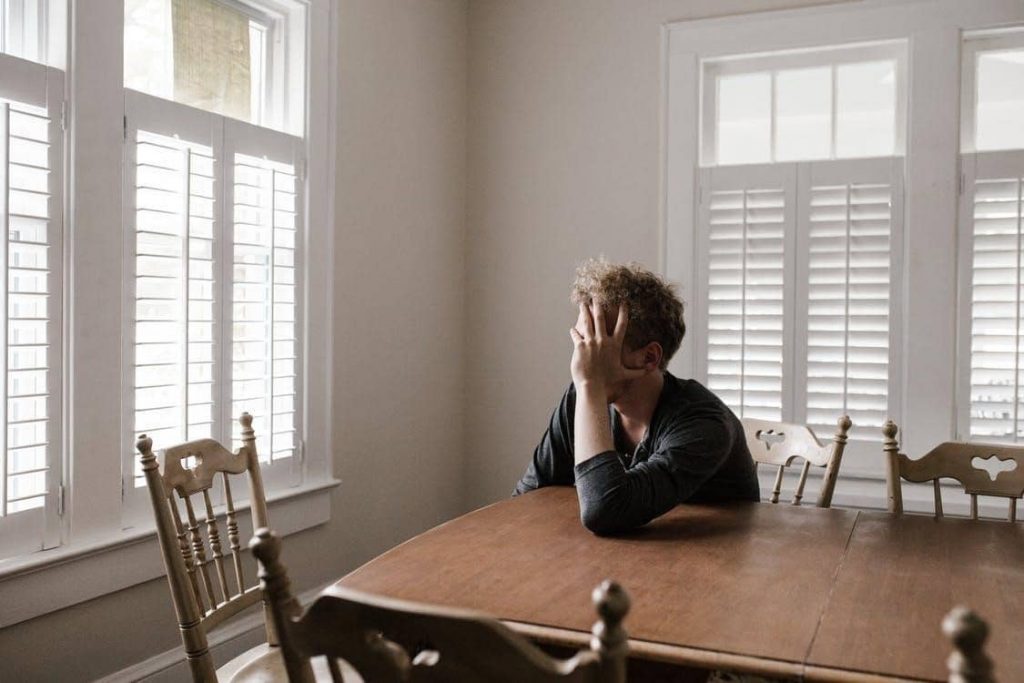I Don’t Trust Myself, Anymore”: Why Do You Feel This Way (And How To Mend It)

Trust isn’t something that only helps us strengthen our relationships with others but it is also the one quality that can help us strengthen the relationship we have with ourselves. Trust is one of the foundations of a strong relationship, but if you can’t trust yourself, who can you trust?
It all comes down to how you feel about yourself. When you trust yourself, you feel confident in your actions, it makes you feel stronger in your decision making, and this small step of trusting yourself can even help in lowering your anxiety.
However, there are instances in life where you make the wrong decision and lose confidence in yourself. While this is more common than you might think, it can have a long-lasting impact on your overall well-being.
So if you find yourself wondering, “I don’t trust myself, anymore”, don’t worry, here I’ve listed some interesting steps to help you regain your trust in yourself.
Before we begin, let’s take a look at the signs and reasons why you’ve lost trust in yourself:
Signs You Don’t Trust Yourself

If you’ve noticed a lack of trust in yourself these days but aren’t sure, here are some signs that can help you understand how you feel about yourself:
- You constantly seek external reassurance and advice instead of inner guidance
- You request opinions from others on any important decisions
- You hesitate in making decisions and find it easier to accept uncertainty than fear making the wrong choice
- You often find yourself disconnecting from your inner self
- You overestimate others’ views and underestimate your instincts
- You often feel guilty after making a decision and live in fear of having made the wrong decision
- You constantly ruminate on “What ifs”
- You often compare your decisions with others’ choices
- You don’t feel like you’ve made the right decision unless you receive reassurance from others
- You’re quick to think negatively about yourself
- You undervalue the power of yourself
- You fail to recognize your self-worth and value
Reasons You Lack Self-Trust
Numerous reasons can hold you back from trusting yourself, unconditionally. Here are some of them:
1. You Fear Making The Wrong Decision
When you’re not assured or aware of their self-worth, feelings, and thoughts, you may often find yourself seeking external perspective. Most of the time, the need to seek external validation stems from a fear of making the wrong decision. Your lack of self-confidence may hold you back from improving yourself.
You also often face a dilemma. You seem to classify decisions as either right or wrong, black or white; this perception can also affect your ability to trust yourself.
2. You Don’t Understand Yourself
When you lack self-understanding, you may find yourself lacking self-trust too. When you don’t know anything about yourself, how can you trust yourself to make a decision? You often find yourself in a position where you struggle to accept your instincts because of your lack of confidence (or unawareness) in your abilities.
3. Your Past Is Holding You Back
When you lack trust in yourself, it can stem from a place of emotional abuse or poor decision that led to you being hurt. Any event in the past where you got emotionally, mentally, or physically hurt because of a decision you took can also be a reason you lack trust in yourself.
This can often lead you to second guess yourself and seek others’ opinions to help make a decision. While this can help gain some control, it can worsen with time as you begin to lose connection with your instincts.
How Lack Of Self-Trust Impacts You?

Lack of self-trust can not only take a toll on your ability to self-connect and decision-making but can also cost your mental and emotional wellness. When you struggle with a lack of self-trust, you may struggle with:
- Poor mental health
- Increase in anxiety, depression, etc
- Increased feelings of guilt
- Poor sleep
- Increase in negative and ruminating thinking
- Poor memory
- Poor heart health
- Increased risk of diabetes
Self-Trust vs. Self-Belief
Self-belief or faith in yourself can be described as self-efficacy or the belief that you can complete your task and achieve your goals. It is knowing that you’re capable of success.
Self-trust, on the other hand, can be defined as always staying true to yourself. Trusting yourself means you know and recognize your needs and take steps to take care of them. You treat yourself with love and compassion and refuse to give up even if you face failure.
How To Regain Trust In Yourself?

“As soon as you trust yourself, you will know how to live.” – Johan Wolfgang Von Goethe
If you’ve realized that you’ve lost trust in yourself and if you’re asking yourself, “how to trust myself?”, well, here are some steps you can take to regain your lost trust in yourself!
1. Learn To Be Yourself
If you’re scared of judgment from others, it can make it harder for you to trust others as well as yourself. When you act differently from who you are, it can also be a sign of a lack of self-trust. To trust yourself, you need to be true to yourself. If you feel insecure around others, accept the feelings. Accept yourself. Trust that your loved ones know you and love you for your true self.
2. Learn To Be Kind To Yourself
Unconditional love doesn’t limit kindness and love towards others. Turn this unconditional love inward too. Regaining trust in yourself means learning to be kind to yourself when you face criticisms. You can start by paying attention to your self-talk. Be kind to yourself, as you would be with others. This will help increase your self-confidence.
3. Focus On Your Strengths
No one’s perfect and we all have shortcomings that we pay more attention to than our strengths, especially when we already lack self-trust. However, we know what we excel in, right? So let’s focus on that. If you want to regain trust in yourself, focus on your strengths more than your failures. Spend time building your strengths and doing things you’re good at.
4. Focus On Self-Connecting
Lack of self-trust can make it uncomfortable when it comes to self-understanding. If you’re struggling here, you can try to gradually turn inward instead of to others when it comes to making a choice. You can try meditation or take “me time” just to have one-on-one time with yourself.
5. Stop Questioning Yourself
When you lack self-trust, you constantly question yourself and your decisions. Well, sometimes it can even make you question your self-identity. You can break this unhealthy habit by stopping questioning yourself. If you’ve made a decision, then stick with it, even if it turns out to be the wrong one, you’ll still learn from it.
6. Visualize Positive Outcomes
If you’re scared that you’re making a wrong decision, you can try to increase your confidence by visualizing a positive outcome. Positive visualization techniques can help you regain trust in yourself slowly but steadily.
Losing trust in yourself can take a toll on your overall wellness and not only this but can make you miss the happy moments of your life. Lack of self-trust means that you lack self-confidence and when you’re not confident, how can you truly enjoy life?
You need to trust yourself to trust your instincts and as I said in the beginning; if you can’t trust yourself, who can you trust? It’s time you tune in to yourself and pay attention to how you feel about yourself.
I hope these steps will help you regain trust in yourself and soon! For more, you can connect with a professional at BetterHelp, or you can write to us at info@calmsage.com.
Losing Trust In Yourself, Ask Help From A Professional Counselor
If you found these steps helpful, share your thoughts with us in the comments below.
Take care and keep trusting on!




















